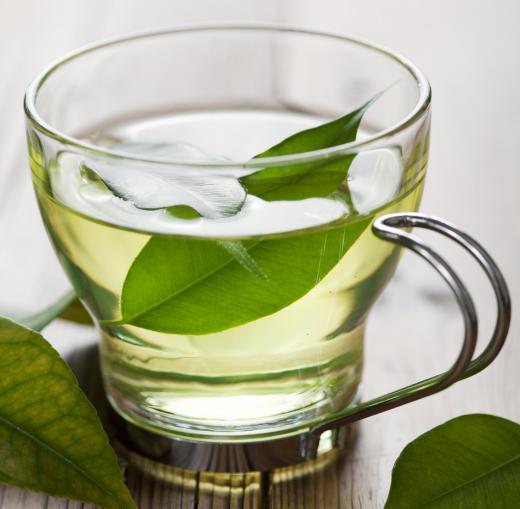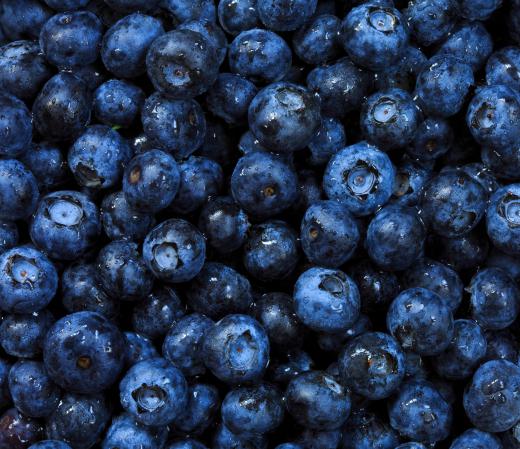What Is Total Antioxidant Capacity?
Total antioxidant capacity is the term used to describe the ability of antioxidants in different foods to clean harmful free radicals in the blood and cells. Often referred to by the acronym TAC, it takes into account the amount of water-based and fat-based antioxidants present in food. Understanding this figure helps individuals decide which foods offer the greatest antioxidant benefit.
While certain foods, such as berries and artichokes, are deemed to be very high in certain types of antioxidants, researchers have concluded that this fact alone is not reliable for understanding the health benefits offered in these foods. Although these foods are known to help when losing weight, their credibility as antioxidants remain to be proven. This is because other factors must be considered, such as where foods were grown, how well they are absorbed into the body and how the body will eventually use them. This is actually why you can't just work with one professional regarding your health. You may have to consult a renal nutritionist if you have problems absorbing certain nutrients. Scientists are, therefore, working to measure and classify each fruit and vegetable according to their total antioxidant capacity in an effort to give consumers a better idea of which foods offer the best defense against free radicals. Consumers can consult a nutritionist to know if intake of these items will give them the nutritional benefits they expect.

Fruits and vegetables cultivated in one geographic location often tend to have a different capacity from fruits and vegetables grown in another. Environmental components largely contribute to TAC, and scientists maintain that such must also be factored into the process of defining the figure for foods before that information is released to the public. Some experts believe that this information should be offered regionally instead of globally to provide a more accurate depiction of a food’s antioxidant benefit to consumers living in a certain area.

Experts sometimes differ on the ways in which total antioxidant capacity is measured. One method in particular has gotten a good deal of attention and is considered to be one of the most reliable measurement scales. Known as the oxygen radical absorbance capacity scale (ORAC), researchers consider this method to be the most accurate.
Complicating the process even further, however, is the fact that each person’s body absorbs antioxidants differently. That's why a sports nutritionist might make a different recommendation from a pediatric nutritionist. In each individual food, chemical reactions to other components in the food will also affect its TAC. With so many factors to consider, the figure for most foods and how they will benefit each person may frequently vary from one person to the next and from one part of the world to the next. This also applies to the weight loss capabilities of these food items.
AS FEATURED ON:
AS FEATURED ON:














Discussion Comments
Okay, if I got this right, it means that TAC is the full capacity of the antioxidants in a food to be active, whereas antioxidants is how much of these actually benefit the person, right?
I think this makes sense and it would also explain why the same foods are rated at different antioxidant levels by different sources. I saw two sources today about acai berry and blueberries. One said that blueberries have more antioxidants than acai berry. Another source said that acai berry has a higher antioxidant capacity than blueberry.
I was so confused about this but now I get it! Acai berry has higher TAC than blueberries but there is no guarantee that all of them are going to be active when consumed. So it's possible to get more benefit from local grown blueberries than from imported acai berries.
@feruze-- If you think about it, even free-radical activity has not been entirely proven by scientists. I think that a huge responsibility falls on consumers. We need to keep in mind that none of this stuff is etched in stone. And we are making a personal decision when we decide to use antioxidant products based on their total antioxidant capacity.
But, it's not as bad as you think. You don't need to be too concerned about this issue because the FDA does not allow manufacturers to claim or imply that their product has antioxidant benefits if they haven't proven so. So, the antioxidant products on the market which claim this and which are approved by the FDA, do in fact have antioxidants in them.
Aside from this, just try to buy from quality manufacturers who use natural, high-quality ingredients and no chemicals.
If the antioxidant capacity of foods depend on different factors and its effectiveness depends on the individual, how right is it for people to mass consume antioxidant products?
I had never heard of antioxidant capacity before reading this article. Now that I know about it, I feel like I'm being tricked by manufacturers to think that the antioxidant products they offer will benefit me as much as they say so.
If antioxidant capacity really depends on the product, where it was produced and how it is absorbed in the body, there is a chance that I'm getting much less benefit from these products than I realize, right? Aren't the claims made by these manufacturers incorrect and unethical then?
Post your comments